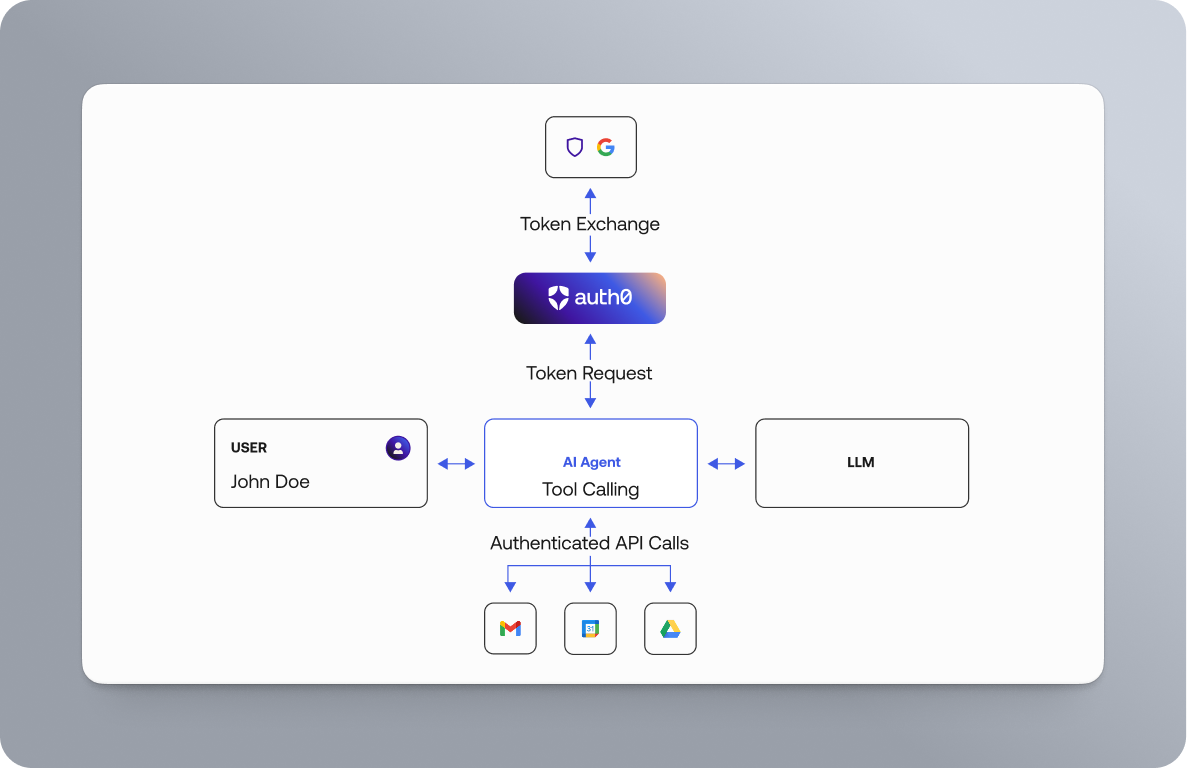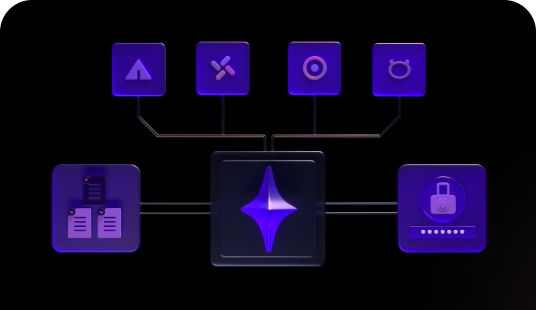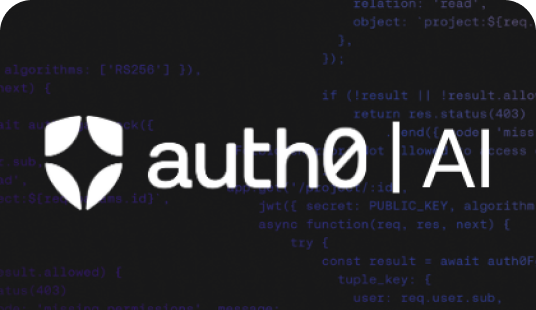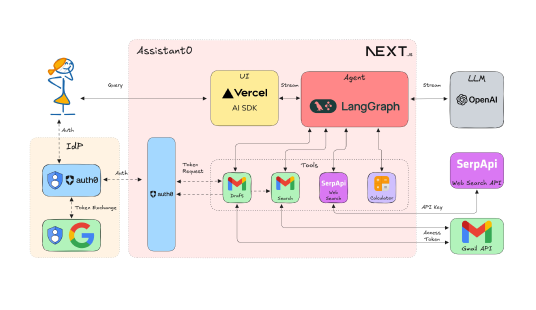Authentication for GenAI
Exploring authentication for Generative AI Applications
Hypothesis
GenAI is accelerating fast. Spending is expected to grow from $20B in 2024 to over $200B by 2028. And with platforms like Salesforce projecting a billion AI agents by 2025, it’s clear: GenAI will transform the way we build and use software. But getting GenAI apps to production isn’t just about cool demos. It's about trust, security, and identity. We believe authentication is the missing link.
Updates
GenAI agents need to understand who the user is, be able to call APIs on the user’s behalf, obtain human confirmation for background tasks, and retrieve only the data the user is authorized to access. That’s where Auth for GenAI comes in.
We announced Auth for GenAI at Oktane and launched a Developer Preview to start testing our ideas with the community.
Here’s what we’re shipping:
• SDKs to integrate user authentication in GenAI apps.
• Support for 3rd Party API tokens, such as Google, GitHub, etc.
• Async authenticationfor human-in-the-loop approvals.
• Fine-grained authorization for RAG using Okta FGA / OpenFGA.

We’re working with:
• LangChain
• Genkit
• LlamaIndex
• Vercel
We’ve also open sourced a reference app that demonstrates all these patterns — available at GitHub Demo
Auth for GenAI has graduated from the Lab and is now an Auth0 feature currently in early access. Auth for GenAI enables secure user authentication, token management, and fine-grained access control for AI agents, APIs, and data workflows — all with developer-friendly APIs.
Resources

Auth for GenAI: Launching Identity for AI Agents
Auth for GenAI is now available in Dev. Preview. Add a critical component to Gen AI apps: identity for AI Agents.

More Secure Code With AI-Powered Tools
Essential practices for securing AI-generated code, key security considerations for your full-stack application...

Implementing Access Control for RAG Systems Using FGA
Generative AI is everywhere, and since not every user has access to all data, learn how to use...

Build an AI Assistant
Learn how to build a tool-calling AI agent using LangGraph, Vercel AI SDK, and Next.js. Integrate different kinds of tools in them...